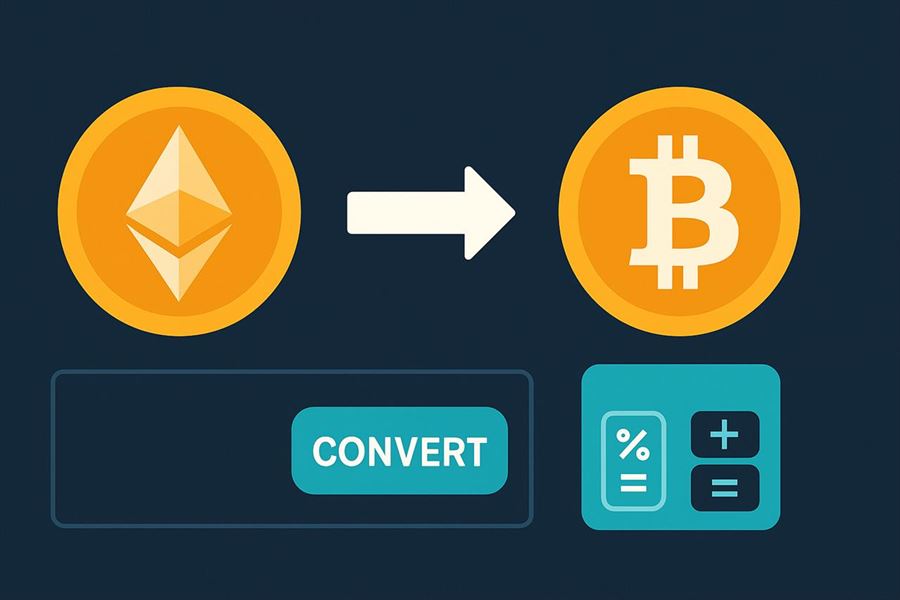Converter ethereum to bitcoin - your ultimate guide

With the continually expanding world of cryptocurrencies, understanding how to efficiently convert between digital currencies is crucial. Whether you're a seasoned investor or just starting your crypto journey, knowing how to convert Ethereum to Bitcoin is immensely valuable. In this article, we will explore the details of this conversion process, its benefits, and how to utilize tools like the eth to btc converter for seamless transactions.
Why Convert Ethereum to Bitcoin?
Both Ethereum and Bitcoin are giants in the cryptocurrency market. However, there are several reasons you might wish to convert Ethereum to Bitcoin:
- Market Trends: Bitcoin's market trends often differ from Ethereum's, and investors might convert to capitalize on these fluctuations.
- Portfolio Diversification: Diversifying your portfolio by holding both Bitcoin and Ethereum can minimize risk and enhance potential returns.
- Transaction Purposes: Certain transactions or purchases might require Bitcoin, necessitating a conversion from Ethereum.
Understanding the Conversion Process
Converting Ethereum to Bitcoin involves utilizing cryptocurrency exchanges or conversion tools. Here’s a closer look at how this process is typically handled:
1. Choose a Reliable Exchange or Converter
Select a trustworthy platform that supports Ethereum to Bitcoin conversion. Factors like security, ease of use, and transaction fees should influence your choice.
2. Create an Account
If you're using an exchange, you'll need to register an account. This typically involves providing some personal information and verifying your identity.
3. Deposit Ethereum
Deposit Ethereum into your exchange wallet or account. This step is crucial as you cannot convert what you do not possess in your online wallet.
4. Initiate the Conversion
Once your Ethereum is securely stored in your account, initiate the conversion process. Depending on the platform, you might need to specify the amount you wish to convert.
5. Receive Bitcoin
After the conversion, the equivalent amount of Bitcoin will be deposited into your account. You can then choose to hold, sell, or transfer it as needed.
Benefits of Using a Converter Tool
Converting Ethereum to Bitcoin manually via traditional exchanges is feasible. However, using a dedicated converter tool offers distinct advantages:
- Speed: Conversion tools are often faster and more efficient, completing transactions in a matter of minutes.
- User-Friendly Interface: They usually boast an intuitive design, making them accessible even to beginners.
- No Middlemen: Direct conversion capabilities often eliminate the need for intermediaries, reducing costs and complexity.
- Real-Time Rates: Reliable tools provide real-time exchange rates, ensuring you get the most accurate conversion possible.
Potential Challenges and How to Overcome Them
While converting Ethereum to Bitcoin is generally straightforward, there are challenges you may encounter:
1. Volatility
The volatile nature of cryptocurrencies means that prices can fluctuate rapidly. Utilize real-time tracking tools and set alerts to convert at the most advantageous times.
2. Fees
Conversion and transaction fees can accumulate, impacting your returns. Always verify any associated costs before proceeding with a conversion.
3. Security Risks
Ensure that your chosen conversion tool or exchange employs robust security measures to protect your investments from malicious attacks.
Conclusion
Converting Ethereum to Bitcoin is a strategic financial move for effective portfolio management and diversification. Utilizing tools like the eth to btc converter significantly simplifies the process, offering speed and ease of use that are invaluable in the fast-paced world of digital currencies. By understanding the conversion process, potential challenges, and utilizing the right tools, you can make well-informed decisions and optimize your cryptocurrency investments.